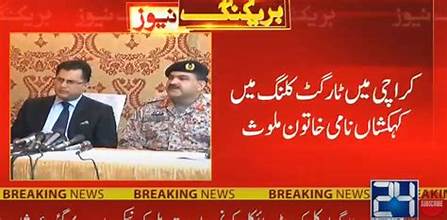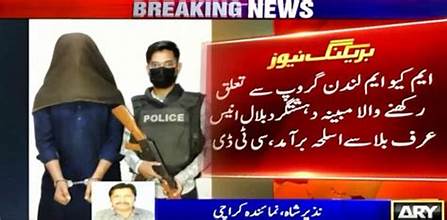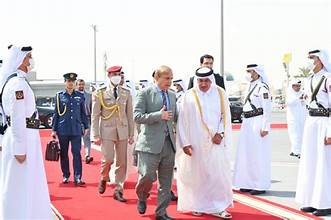Karachi, Pakistan’s bustling metropolitan hub and economic powerhouse, has long faced challenges related to law and order, terrorism, and cross-border subversion. In a recent major breakthrough, the Counter-Terrorism Department (CTD) announced the successful dismantling of a terror network allegedly linked to India’s intelligence agency, Research and Analysis Wing (RAW). This operation has not only brought relief to security agencies but also highlighted the persistent threats Pakistan continues to face from external elements attempting to destabilize the country.
The Operation and Its Significance
According to CTD officials, the network was uncovered after months of surveillance, intelligence-gathering, and undercover operations. The terror cell was reportedly involved in planning sabotage activities, targeting vital installations, and carrying out attacks to create instability in Karachi. Multiple suspects were arrested, while weapons, explosives, and communication devices were also recovered during raids.
The CTD confirmed that the network maintained direct links with RAW handlers across the border. Their primary objectives included creating unrest in Karachi, disrupting economic activities, and damaging Pakistan’s internal stability. This revelation is significant as it sheds light on how external agencies attempt to exploit internal vulnerabilities to advance geopolitical agendas.
Karachi’s Geopolitical Importance
Karachi, with its massive population and status as Pakistan’s financial capital, has always been a target for hostile elements. The city hosts the country’s largest seaport, a critical artery for international trade and energy imports. Any disruption in Karachi directly impacts Pakistan’s economy, industrial output, and global trade commitments.
For decades, Karachi has witnessed ethnic strife, sectarian violence, gang wars, and terror activities. While much progress has been made in restoring peace, attempts to rekindle unrest have never completely stopped. External actors, such as RAW, allegedly exploit these fault lines to weaken Pakistan’s resilience. Thus, the dismantling of this particular network is a victory not just for Karachi’s security but for the entire nation.
The Role of RAW in Destabilization

Pakistan has repeatedly accused RAW of sponsoring terrorism within its borders, particularly in Balochistan and Karachi. These claims gained global attention when in 2016, Kulbhushan Jadhav, a serving Indian naval officer, was arrested in Balochistan and confessed to working for RAW to destabilize Pakistan. His testimony provided evidence of India’s covert operations inside Pakistan.
The recent bust in Karachi adds weight to Pakistan’s stance on cross-border interference. According to CTD officials, the terror network in Karachi was not operating independently but was part of a broader strategy to inflame unrest in sensitive regions. The use of local operatives, funding channels, and coordinated attacks highlight the sophisticated methods employed by RAW-backed cells.
CTD’s Growing Role in Counter-Terrorism
The Counter-Terrorism Department of Sindh Police has evolved into one of Pakistan’s most effective law enforcement units. Over the years, it has carried out high-profile operations against militant groups, sectarian outfits, and organized criminal networks.
The recent success in dismantling the RAW-linked network showcases CTD’s improved intelligence capabilities and operational expertise. This operation required months of patience, undercover work, and coordination with federal intelligence agencies. By intercepting financial transactions and communication trails, CTD was able to trace the network’s activities back to external handlers.
Political and Diplomatic Implications
The revelation of RAW’s involvement in supporting terrorism in Karachi is likely to heighten diplomatic tensions between Pakistan and India. Relations between the two nuclear-armed neighbors remain strained, with issues ranging from Kashmir to cross-border ceasefire violations. Pakistan has consistently raised the issue of Indian-sponsored terrorism at international forums, including the United Nations.
This development could provide Islamabad with fresh evidence to present before the international community, strengthening its narrative about India’s covert destabilization efforts. However, India has historically denied such allegations, often dismissing them as politically motivated.
Public Response and Security Reassurances

For ordinary citizens of Karachi, the CTD’s successful operation comes as both a relief and a reminder of the challenges that remain. Residents have lived through decades of violence, and while the situation has improved dramatically in recent years, the fear of resurgence lingers.
The authorities have reassured the public that counter-terror operations will continue and that any threats to Karachi’s peace will be dealt with firmly. The recovery of arms and explosives from the busted network also underscores the scale of potential devastation had these plans succeeded.
The Need for Vigilance and Unity
While the security forces deserve credit for their success, it is equally important for society to remain vigilant. Terror networks often thrive in marginalized communities where unemployment, poverty, and social grievances can be exploited. Addressing these root causes is essential to preventing future infiltration by hostile agencies.
Moreover, political unity and consistency in counter-terrorism policies are vital. Partisan politics or selective accountability can undermine progress. Karachi, as a city of diverse ethnic and political groups, needs inclusive governance to reduce vulnerabilities that foreign actors seek to exploit.
Looking Ahead
The dismantling of the RAW-linked network in Karachi is a significant victory in Pakistan’s broader fight against terrorism. It highlights the effectiveness of intelligence-led policing and reaffirms the need for constant vigilance against external threats.
However, this is not the end of the battle. Security agencies must continue to monitor sleeper cells, financial channels, and digital communication that hostile elements may use. Furthermore, Pakistan must continue its diplomatic efforts to expose and counter cross-border terrorism on the global stage.
For Karachi, a city striving to reclaim its place as a safe and thriving metropolis, such operations provide hope that peace and stability are within reach. But the lesson remains clear: external threats will persist as long as adversaries seek to undermine Pakistan’s progress, and only through unity, resilience, and strong security measures can these challenges be overcome.



